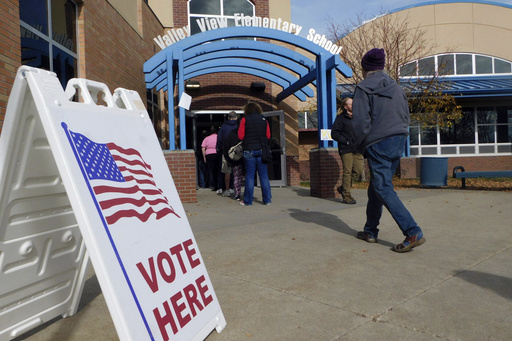
Becoming a resident of South Dakota is surprisingly simple; all it takes is one night spent in the state. You can stay at a campground or a hotel, and then visit specialized businesses that assist newcomers with the necessary paperwork to establish residency. This arrangement appeals to many, as South Dakota has no income tax and offers low vehicle registration fees.
This practice not only adds to state revenue through vehicle fees but also serves as a haven for full-time travelers who may lack a permanent address or voting rights elsewhere. However, this has led to a debate among state officials regarding voting rights for those who do not permanently reside in South Dakota. There is a divide between advocates who argue that anyone should have the right to vote and those who believe that only genuine residents should participate in local elections.
Recent reports suggest that at least one state has begun looking into the possibility that its residents are exploiting South Dakota’s easy residency options to evade high income taxes. This situation has opened up new business opportunities for entities like RV parks and mail forwarding services, which cater specifically to those embracing a nomadic lifestyle.
Dane Goetz, the owner of the South Dakota Residency Center in Spearfish, mentioned that many individuals who have transitioned from traditional homes to mobile living arrangements seek a place to call home, making South Dakota an appealing option. He estimates that over 30,000 people have claimed South Dakota residency while living a full-time traveling lifestyle, though the actual figures remain uncertain, as the state’s Department of Public Safety does not track these applications.
Victor Robledo and his family are part of this trend; they began their adventures a decade ago in a motorhome, leaving behind the financial burdens of Southern California. After discovering South Dakota, they decided to establish residency in 2020. Robledo described the process as incredibly simple: just spend a night in the state, gather the necessary receipts, fill out the required forms, and change their licenses, all in less than 48 hours.
This newfound flexibility raises questions about voting, with some local lawmakers expressing concern over transient residents participating in local elections. Democratic Representative Linda Duba voiced her concerns about “mailbox residents” who don’t actively engage in the community. She noted that nearly 40% of her constituents in Sioux Falls fall into this category, complicating her efforts at community engagement.
In response to these concerns, the Republican-led Legislature enacted a law in 2023 that mandates a minimum of 30 days of residency for voter registration, with the stipulation that this does not have to be consecutive. The bill’s main proponent, Republican Senator Randy Deibert, emphasized that residents were worried about individuals registering to vote immediately after spending just one night in South Dakota.
While voters registered prior to the new law will remain registered, many newcomers have faced difficulties obtaining voter registration since the law’s implementation, prompting them to reach out to the American Civil Liberties Union of South Dakota for assistance. Concerns have been raised about the constitutionality of such residency requirements, as they may violate the interstate right to travel according to experts in political science and law.
State lawmakers continue to find themselves divided over the implications of the residency law, with discussions on potentially rolling back the new requirements occurring this year. A prior Senate proposal has stalled in the House due to disagreements. During debates, lawmakers have directed inquiries at travelers about their physical presence in the state, highlighting the challenges surrounding the notion of residency.
Emergency measures and litigation are anticipated as ways to address the rising complexities surrounding voting and residency status. Furthermore, issues have arisen in Connecticut, where officials have begun to investigate whether residents may exploit South Dakota’s lenient residency policies to evade state taxes, given Connecticut’s graduated income tax system and local vehicle taxes.
The matter has been raised at legislative meetings in South Dakota, where some lawmakers, like Republican Senator Jim Bolin, remarked on the difficulties in defining residency amid a growing and mobile population. The blending of political boundaries and varying living arrangements complicates the legal landscape, turning what was once a straightforward residency policy into a “Gordian knot of politics.”

